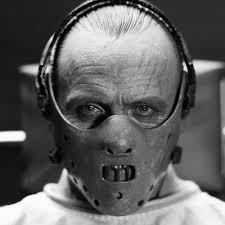I was informally (mis)diagnosed as "probably psychopathic" by my supervisor when I did my Social Psychology postgraduate at the University of Leicester psychiatric teaching hospital back in 1989. Now I realise that I was really diagnosed with adult autism by a psychologist who didn't have the tools to differentiate.
It's interesting because it started me on my path to computerising the psychiatric investigation part of the DSM (well, initially Hare PCL) evaluation for my Master's degree. The psychometric question-and-answer model and demo I came up with had me firmly psychopathic in PCL's diagnostic terms, whereas these days it would be easily diagnosed as autism.
I went on to expand the idea from psychometrics, to behaviour analysis in virtual worlds, which I figured would be a better capture than psychometric questions - Would the person co-operate to attain a goal, would they show altruism, would they be quick to anger - There's a lot you can measure in the virtual world as we know very well now, but didn't in 1991. Sadly, the lack of modern technology and the need to feed myself brought this PhD to an end without a write-up - But it's no wonder I ended up working for OkCupid, I guess :D
The sad thing about that is that although it didn't impact my life at all, other than having an interesting topic to discuss at parties, the PCL is used as a tool by US prisons in their parole calculations. A PCL diagnosis is a heavy weighting against parole, even though Hare himself has said that isn't the way this should be used. I dread to think how many autistic people are stuck in prisons for evermore because of misdiagnosed psychopathy.
The psychopathy test puts a lot more emphasis on masking and social interactions than on kidnapping people and putting them in wells to skin them later, I feel.
I can't be bothered to write a blog post about this, so I will scream into the #Mastodon #Void instead - Except now I have to think of some other #Hashtags which is always the hard part, I get carried away, autism you see!
#Medicine #Psychology #Psychiatry #MentalHealth #Education #Diagnosis #Psychopathy #HarePCL #DSM #Psychometrics #Statistics #Autism #ADHD #RetroComputing #Gaming #Online #Worlds #MUD #Leicester #UniversityofLeicester #Prison #Parole #HannibalLecter #SilenceoftheLambs #OkCupid #Tinder #Hinge #MatchGroup #Algorithms #BigData
